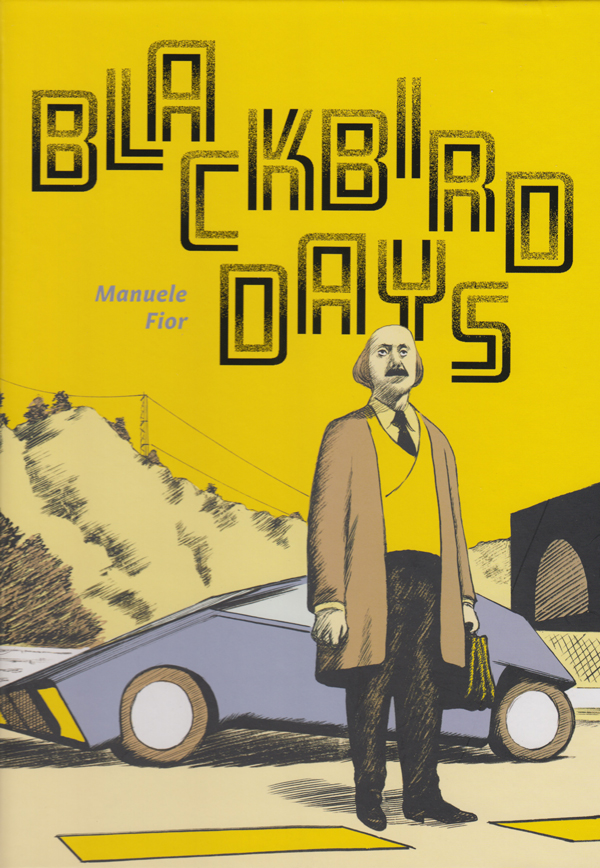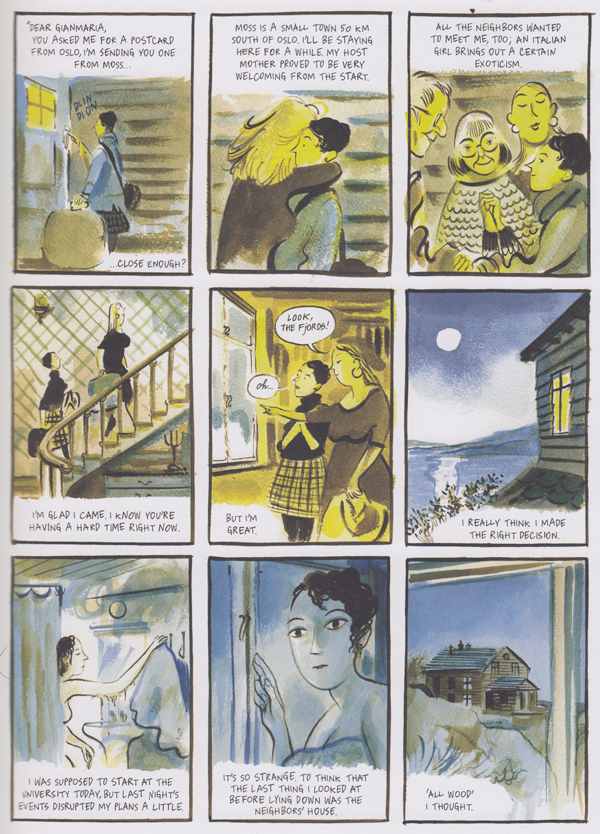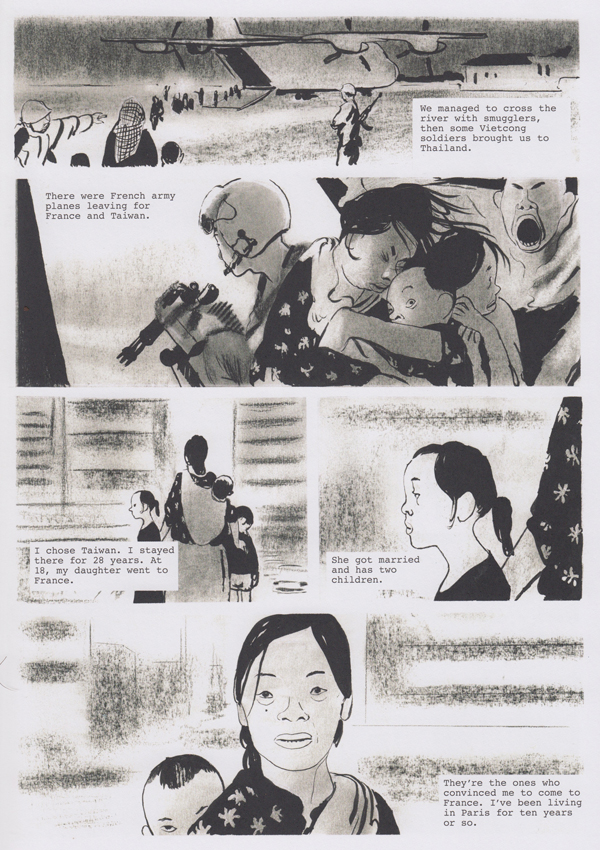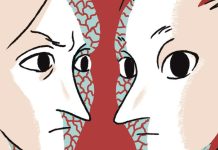Blackbird Days, an anthology of shorter work by Italian graphic novelist Manuele Fior, gathers stories from the past decade, but this is no casual gathering of independent creations. Fior’s themes stretch richly through the various works, creating a uniformity wherein so many collections there are none.
In “Help! Hilfe!” a missing Italian child in Germany brings forth an internal dialogue that reveals a father’s nationalist inadequacy that descends into a surreal journey through Germany’s history of destruction.
Italian identity is explored through travel again in “Class Trip,” which follows Italian school kids and their teachers on a trip to Paris. By portraying the hostile relationship between one teacher and her students, and then juxtaposing that teacher’s idealized vision of Paris with the more realistic, dour view by the other teacher, Fior captures the way personal dissatisfaction can infect so many aspects of life, including your view of own society in the context of another.
Travel is further used as a method of self-examination in two postcard shorts, one from Oslo and one from Salento, both presenting tragedies during points of transformation.
“The Story of Gabriel C.” is a jarring psychological report of a self-destructive soldier who has been hospitalized. Running through the series of tragic events that is Gabriel’s experience, it’s another case of being removed from your place as a transformative action — just not a very pleasant one at all.
“The Painter” offers a brief glimpse of Swiss artist Arnold Böcklin and his period of recuperation in Naples, meditating on the relationship boredom has with both agitation and inspiration.
“Grandma and Grandson” take the travel themes and translates them into terms of immigrants and refugees. Two generations of a Laotian family with ties to France plainly state their story and reveal not the effect that location has on them or how travel is transformative, but how in order to survive, adaptation regardless of circumstance or place is the only thing that matters.
If travel comes down to pulling a person outside of their known surroundings and experience, then the title story, also the longest work in the book, boils the idea down to its essence. Inspector Marcuzzi takes an inconvenient trip to a recently revived marble quarry at the insistence of the owner. A vein of red marble has been discovered, and the owner demands Marcuzzi come and see it for himself. The story moves into the realm of science fiction, with cryptic nods to strange events that evoke his graphic novel The Interview. The physical travel of the characters in this story is slight compared to the huge leap the world is about to take — as the possible result, admittedly, of travels across the universe.
“How We’re Doing” is a brief return to reality pointing to the domination of white culture in France and how it allows revitalization to walk hand-in-hand with gentrification, changing not only the landscape but the people who congregate within.
“Gare de l’est” rounds things down by bringing the broader ideas into focus and laying them right at your doorstep. Two battling titans tear apart a city, with crowds fleeing and the lives of citizens being discarded routinely in the onslaught. But Fior eventually dispenses of these vast flourishes to focus on the smaller picture, revealing the only antidote to being without control of the bigger picture is assuredly seizing it in the small one.
Fior’s multi-faceted examination of travel and change as intertwined is advanced by his calm presentation, which allows for him to express the narratives he chooses while the subtexts flow on and on through the various stories. He also employs his considerable illustrative skills to allow the art style to guide the stories he tells, from clear-lined full-color narratives to murky black and white to dream-like reminiscences.
Sometimes, shorter works by such creators of accomplished longer pieces like are not as satisfying, but Fior does a beautiful, haunting job at allowing the same richness to lurk within these stories that are slight only in page count.











Comments are closed.